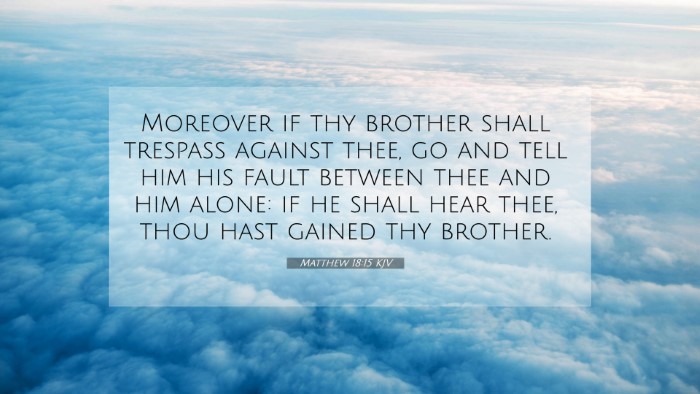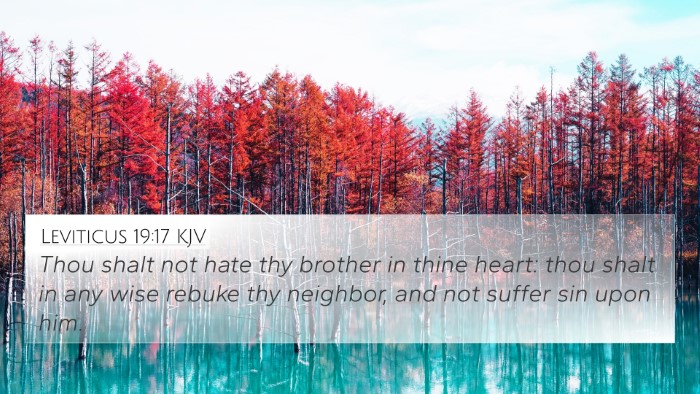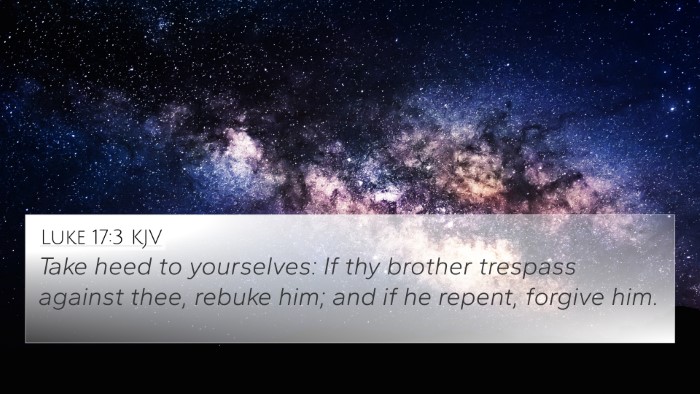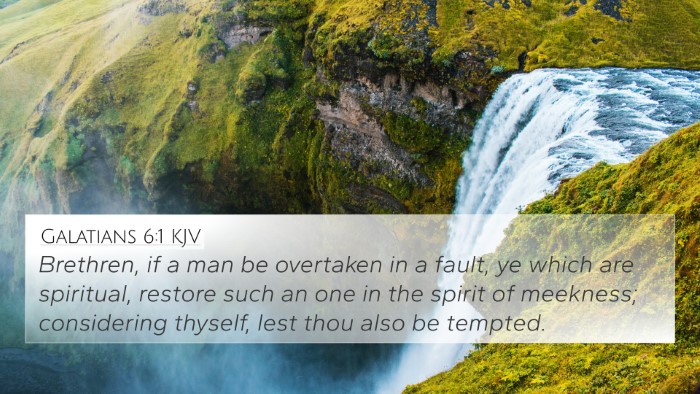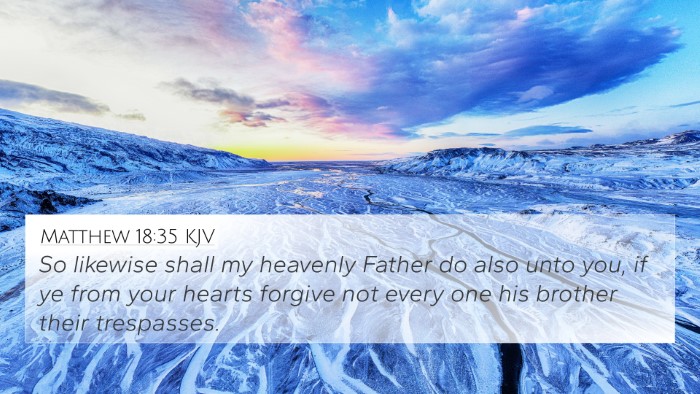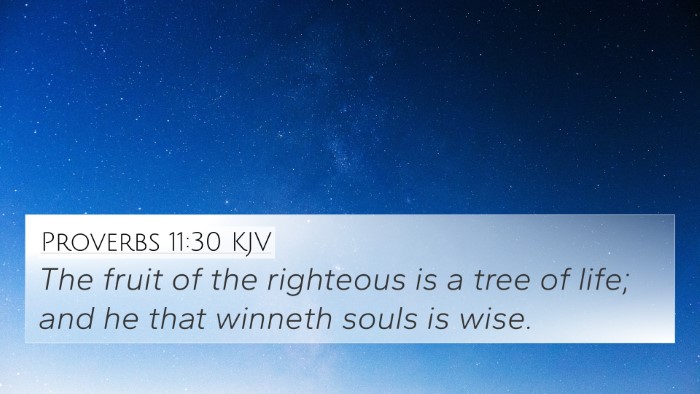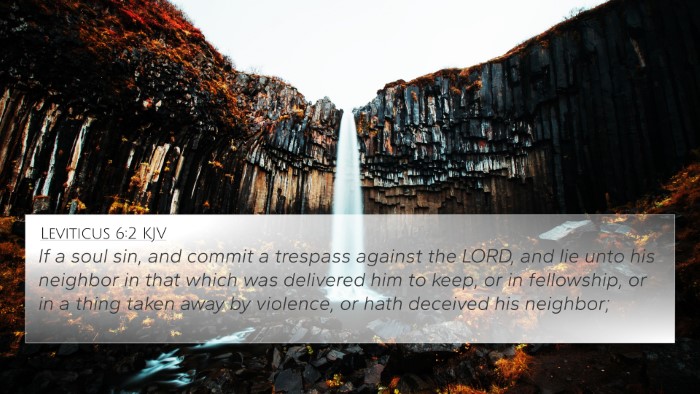Understanding Matthew 18:15
Bible Verse: Matthew 18:15
"If your brother sins against you, go and show him his fault, just between the two of you. If he listens to you, you have won your brother over."
Verse Meaning and Interpretation
This directive from Jesus addresses the principles of conflict resolution within the Christian community. It emphasizes the importance of personal accountability, communication, and reconciliation. This short yet profound verse is foundational for understanding how believers should handle disputes and offenses among themselves.
Key Insights from Commentaries
-
Matthew Henry:
Henry emphasizes the private nature of the confrontation. He asserts that when one is wronged, the immediate course of action should not be public accusations but a private discussion seeking to rectify the situation. This preserves the dignity of both parties and promotes harmony.
-
Albert Barnes:
Barnes highlights the practical wisdom in approaching a brother with gentleness and a spirit of love. He points out that winning a brother over is not just about correcting him, but about restoring the relationship and fostering reconciliation.
-
Adam Clarke:
Clarke notes the significance of the phrase "just between the two of you," explaining that transparency and sincerity in the process are essential. He suggests that the successful resolution of conflict hinges upon sincere dialogue, not gossip or slander.
Practical Applications
In practice, this verse can guide individuals handling inter-personal disputes by:
- Prioritizing personal relationships, conducting conversations in private.
- Establishing an atmosphere of trust and care, creating space for genuine dialogue.
- Focusing on reconciliation rather than merely highlighting faults.
Cross-References for Matthew 18:15
This verse connects deeply with several other biblical passages that underline similar themes of reconciliation, accountability, and community living:
- Galatians 6:1: "Brothers and sisters, if someone is caught in a sin, you who live by the Spirit should restore that person gently." This verse emphasizes the need for a gentle restoration.
- James 5:19-20: "My brothers and sisters, if one of you should wander from the truth and someone should bring that person back, remember this: Whoever turns a sinner from the error of their way will save them from death and cover over a multitude of sins." Here, the value of seeking to restore a wayward brother is affirmed.
- Proverbs 27:17: "As iron sharpens iron, so one person sharpens another." This verse highlights mutual growth and edification in relationships.
- Luke 17:3: "So watch yourselves! If your brother or sister sins against you, rebuke them; and if they repent, forgive them." The call for repentance and forgiveness aligns with the principles seen in Matthew 18:15.
- Romans 15:14: "I myself am convinced, my brothers and sisters, that you yourselves are full of goodness, filled with knowledge and competent to instruct one another." This underscores the responsibility of believers to hold one another accountable.
- 2 Corinthians 2:7: "Now instead, you ought to forgive and comfort him, so that he will not be overwhelmed by excessive sorrow." The theme of forgiveness is crucial in the context of reconciliation.
- Ephesians 4:15: "Instead, speaking the truth in love, we will grow to become in every respect the mature body of him who is the head, that is, Christ." This accentuates the importance of approaching conflict with love.
Thematic Connections and Biblical Dialogue
Matthew 18:15 creates a network of connections across different parts of the Bible that shape our understanding of communal living, relational dynamics, and Christian maturity. Employing tools for bible cross-referencing, one can identify how this verse serves as a foundational principle across various contexts, particularly in understanding the connections between Bible verses related to conflict resolution and community relationships.
Ways to Explore Cross-References
For those interested in delving deeper into the themes of reconciliation and accountability as seen in Matthew 18:15, consider the following practical methods:
- Utilizing a bible concordance to find related verses.
- Engaging in a cross-reference Bible study and tracing thematic patterns throughout the Scriptures.
- Employing bible reference resources that compile similar passages.
- Practicing cross-referencing Bible study methods during personal or group devotions.
Conclusion
Matthew 18:15 serves as a vital instruction for Christians, guiding them in handling conflicts with a heart of love and a mind towards reconciliation. By understanding its deeper implications through comparative Bible verse analysis and exploring the cross-references, believers can cultivate healthier relationships that mirror the character of Christ.


